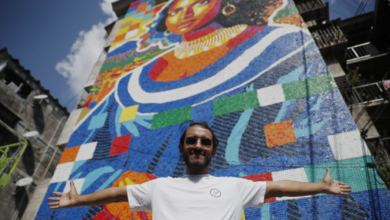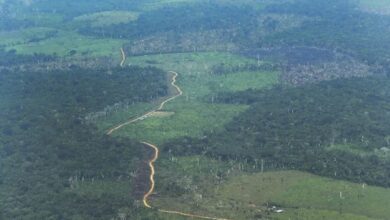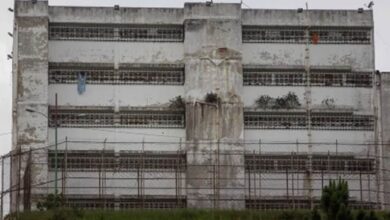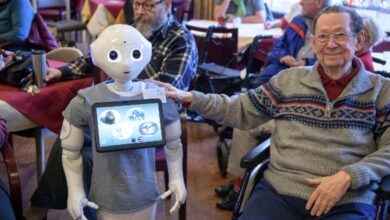Venezuela: speculation and uncertainty
Listen this article
After the so-called Operación Libertad, much is speculated about the future of Venezuela and Nicolás Maduro, and the international community is a major factor

In recent months, the international community has reacted to the current events in Venezuela. In this framework, telephone and face-to-face meetings have been held between different parties: Russia with the United States, the Lima Group and other international organizations.
Leer en español: Venezuela: especulación e incertidumbre
The interim president of Venezuela, Juan Guaidó, now in the hands of Leopoldo López, called the streets to all citizens to fight for his country and against the regime. April 30 and May 1 were tense days in the Latin American country, in the name of Operación Libertad, under which the liberation of the political leader was achieved.
As a result of what happened, that the Government of Nicolás Maduro has called a failed attempt of a coup d'état, the Supreme Court of Venezuela has ordered criminal prosecution of several opponents, for treason against the country and conspiracy, according to El Tiempo.
Read also: What Operación Libertad leaves so far
What does the international community say?
The members of the Lima Group, who were among the first to demonstrate during Operación Libertad, met on Friday, May 3, to discuss the situation. In conclusion, and as the chancellor of Colombia, Carlos Holmes Trujillo, had already stated before, they reaffirm their support for Juan Guaidó, whom they consider legitimate president. Likewise, they condemn the government, according to them, illegitimate, of Nicolás Maduro and ask the Armed Forces and the Supreme Court of Justice "to cease their support complicit in the illegitimate regime," according to the official statement.
The Organization of American States (OAS) gave rise to the Permanent Council, in which Marta Lucía Ramírez, the vice president of Colombia, participated. There was the talk of the need to continue establishing a multilateral diplomacy "to get out of the usurping dictatorship of Venezuela and to put an end to the destabilizing role of the Cuban regime," said Luis Almagro, Secretary General of the OAS, on his Twitter account.
Consejo Permanente de la #OEA recibió a la @ViceColombia @mluciaramirez.
En su mensaje resaltó el compromiso de #Colombia con la defensa multilateral de la democracia en la región. @CP_OEA pic.twitter.com/HdDHk8kUrS— OEA (@OEA_oficial) May 8, 2019
However, one day before Ramírez's participation in this Council, his meeting was with the Secretary of Defense of the United States, Patrick Shanahan. In this meeting, there was talk about a possible sale of military equipment. There was also talk about the solution to possible plans, regarding Venezuela, because nothing is assured and they must be prepared, according to El Tiempo. "It is impossible to predict the future. (Therefore) we have contingency plans, for each scenario, we have to have a plan, and we are doing that, we have a whole menu of options," said the secretary.
Although nothing can be guaranteed, this could be seen as a contradiction considering that with the OAS, the vice president agreed on the need to create a diplomatic fence. Even more, if the secretary said they should put "all options on the table to ensure the security of the region."
For its part, the United States has been, as in recent months, at the forefront of what is happening in Venezuela. After the last facts, Donald Trump had a conversation with Vladimir Putin in which both agreed to want there to be a positive result. According to the BBC, Trump said after the meeting that "He (Putin) is not thinking at all about getting involved in Venezuela, beyond that he wants to see something positive happen in Venezuela, and I feel the same."
However, these statements would be contradictory with the line taken by the White House, directly holding the governments of Cuba and Russia accountable. This, after having affirmed on April 30, that hours before the liberation of Leopoldo López happened, Maduro was willing to go into exile on a plane to Cuba, but that Russia stopped him. Affirmations that could not be verified, although Guaidó affirmed that it would be investigated, and besides that Russia denied it.
Much speculation
After meetings, demonstrations, and, above all, much thought, the only thing that is certain at this moment is that Venezuelan citizens are demonstrating in the streets and they want the situation in their country to change. However, this may not be enough because the conflict facing the country goes further, involves different political and economic interests.
For example, in an interview with El Tiempo, the analyst Moisés Naím, said about Operación Libertad and the events that surround the last days in Venezuela, "nothing of what it seems is; here there are all kinds of surprises, and one must be extremely cautious in predicting what is going to happen within ten hours or two days, based on what is happening at this moment. " So it is necessary to be aware of the volatility of this type of situation, especially when there are so many things at stake and so many positions found with different interests.
Also read: What is Plan País, proposed by Juan Guaidó?
Despite this, the past day hinted something: the Armed Forces could be a decisive factor for the future of Venezuela. However, the problem lies in the fact that this institution is currently as divided as the Venezuelan people. Meanwhile, the opposition will be able to continue trying to strengthen itself from Operación Libertad, and the Maduro regime will be able to continue with the strategy of repressing the opposition.
LatinAmerican Post | Juliana Suárez
Translated from "Venezuela: especulación e incertidumbre"





